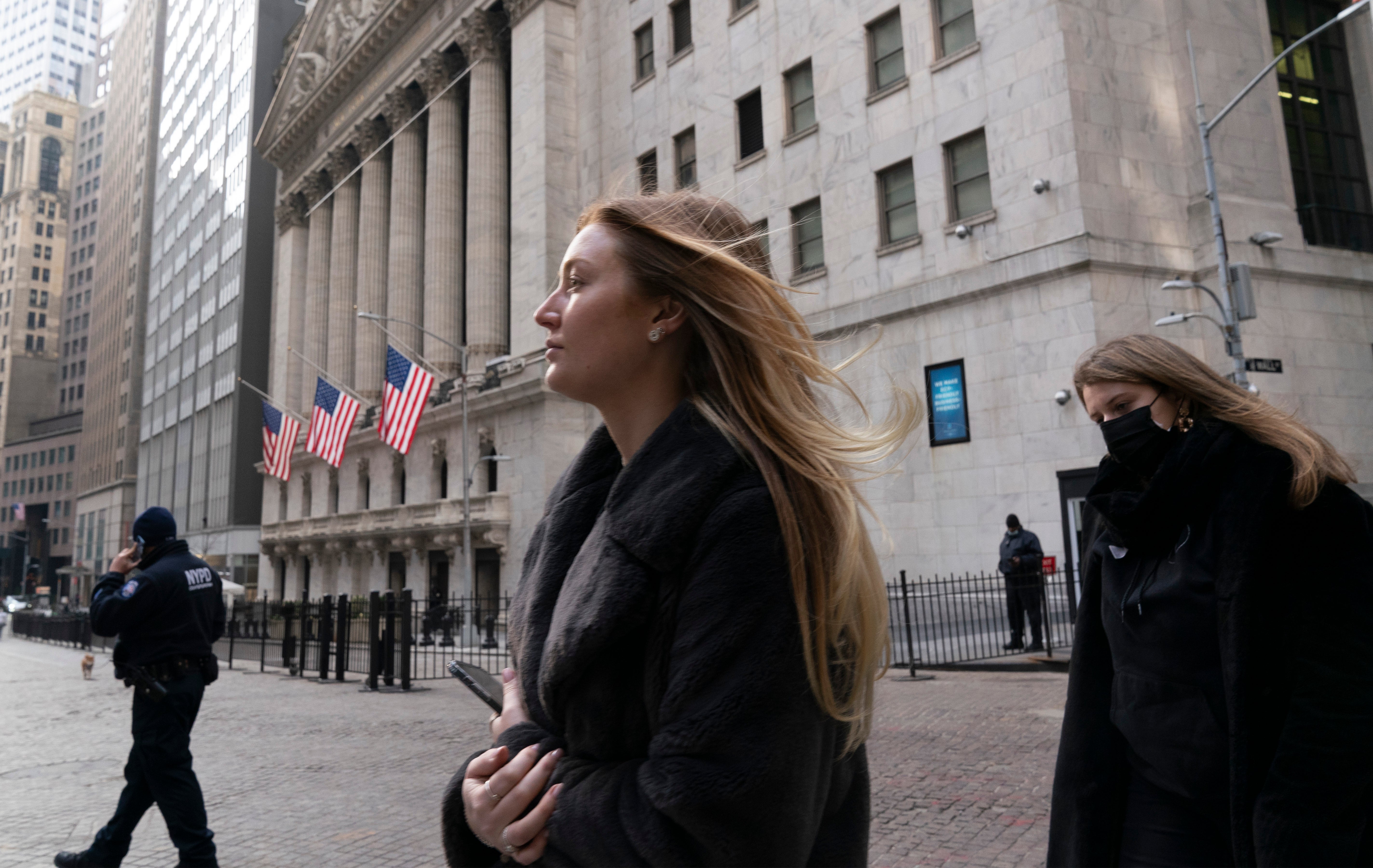Asian shares rise as vaccine wait tempers Wall St optimism
Asian shares have advanced after China reported its economy expanded at an 18% annual pace in the first quarter of the year

Your support helps us to tell the story
From reproductive rights to climate change to Big Tech, The Independent is on the ground when the story is developing. Whether it's investigating the financials of Elon Musk's pro-Trump PAC or producing our latest documentary, 'The A Word', which shines a light on the American women fighting for reproductive rights, we know how important it is to parse out the facts from the messaging.
At such a critical moment in US history, we need reporters on the ground. Your donation allows us to keep sending journalists to speak to both sides of the story.
The Independent is trusted by Americans across the entire political spectrum. And unlike many other quality news outlets, we choose not to lock Americans out of our reporting and analysis with paywalls. We believe quality journalism should be available to everyone, paid for by those who can afford it.
Your support makes all the difference.Asian shares advanced Friday after China reported its economy expanded at an 18% annual pace in the first quarter of the year.
Jubilance over positive Chinese and U.S. economic data and another record high on Wall Street was tempered by caution over coronavirus outbreaks in the region, where rollouts of the vaccine have lagged.
Japan s benchmark Nikkei 225 gained 0.1% to finish at 29,683.37. Australia's S&P/ASX 200 recouped earlier losses, rising 0.1% to 7,063.50. South Korea's Kospi added nearly 0.2% to 3,199.88. Hong Kong's Hang Seng added 0.6% to 28,952.78, while the Shanghai Composite gained 0.7% to 3,423.30.
The contrast between the speed of vaccine rollouts in the U.S. and Asia has been striking. Nearly half of American adults have gotten at least one dose of the vaccine, and about 30% of adults in the U.S. have been fully vaccinated, according to the Centers for Disease Control and Prevention.
Japan, where inoculations for the public have barely started, has seen a resurgence of infections in recent weeks. The country’s western metropolis of Osaka reported over 1,200 new infections Thursday, its highest since the pandemic began. A top ruling party official suggested the possibility of canceling the Tokyo Olympics, set to start in July, if infections continue to surge.
“Nikkei 225 also lacked firm direction amid an indecisive FX trade, and as Japan considers stricter COVID-19 measures for areas surrounding Tokyo,” said Anderson Alvez, analyst at ActivTrades.
Prakash Sakpal and Nicholas Mapa, senior economists for ING, said the markets are awaiting the outcome of a meeting between Japanese Prime Minister Yoshihide Suga and President Joe Biden, set for the weekend.
China’s economy expanded at a sizzling annual pace of 18.3% in the first quarter of the year. But its rebound in factory and consumer activity following the coronavirus pandemic is leveling off, according to data released Friday. The figures were magnified by comparison with early 2020, when China suffered its deepest contraction in decades.
On Thursday, Wall Street notched more milestones, as a broad market rally pushed the S&P 500 to an all-time high and the Dow Jones Industrial Average surpassed the 34,000 mark for the first time.
The S&P 500 rose 1.1% to 4,170.42 for another fresh record. The Dow climbed 0.9% to 34,035.99.
The Nasdaq composite added 1.3% to 14,038.76, while the Russell 2000 index of smaller companies picked up 0.4%, to 2,257.07.
The rally came as investors welcomed a raft of encouraging economic reports showing how hungry Americans are to spend again, how fewer workers are losing their jobs and how much fatter corporate profits are getting.
Expectations are very high on Wall Street that the economy — and thus corporate profits — are rebounding thanks to COVID-19 vaccinations and massive support from the U.S. government and Federal Reserve. New data on retail sales and jobless claims Thursday reinforced the view that the recovery is accelerating.
“Another day, another record," said Chris Zaccarelli, chief investment officer for Independent Advisor Alliance. “The stock market continues to validate the optimistic forecasts from last year, which predicted a strong economy that was driven by consumers emerging from their homes, emboldened by vaccinations or by a belief that the worst of COVID was behind us.”
U.S. retail sales jumped 9.8% in March from February, blowing past economists’ forecasts for 5.5% growth. Much of the surge was due to $1,400 payments from the U.S. government’s latest economic rescue effort hitting households’ bank accounts. Economists said that shows how primed people are to spend as the economy reopens and conditions brighten. That’s huge for an economy that’s made up mostly of consumer spending.
An encouraging read on the job market showed 576,000 people applied for unemployment benefits last week, well below the 700,000 that economists had forecast and down from 769,000 the prior week. It's also the lowest number since the pandemic began.
Adding to the optimism, more big U.S. companies reported even healthier profits for the first three months of 2021 than analysts had forecast. Expectations are already high for this earnings reporting season, which unofficially got underway on Wednesday and could result in the strongest growth in more than a decade.
In energy trading, benchmark U.S. crude gained 19 cents to $63.65 a barrel in electronic trading on the New York Mercantile Exchange. It gained 31 cents to $63.46 per barrel on Thursday. Brent crude, the international standard, added 21 cents to $67.15 a barrel.
In currency trading, the U.S. dollar rose to 108.89 Japanese yen from 108.73 yen. The euro cost $1.1968, down from $1.1970.